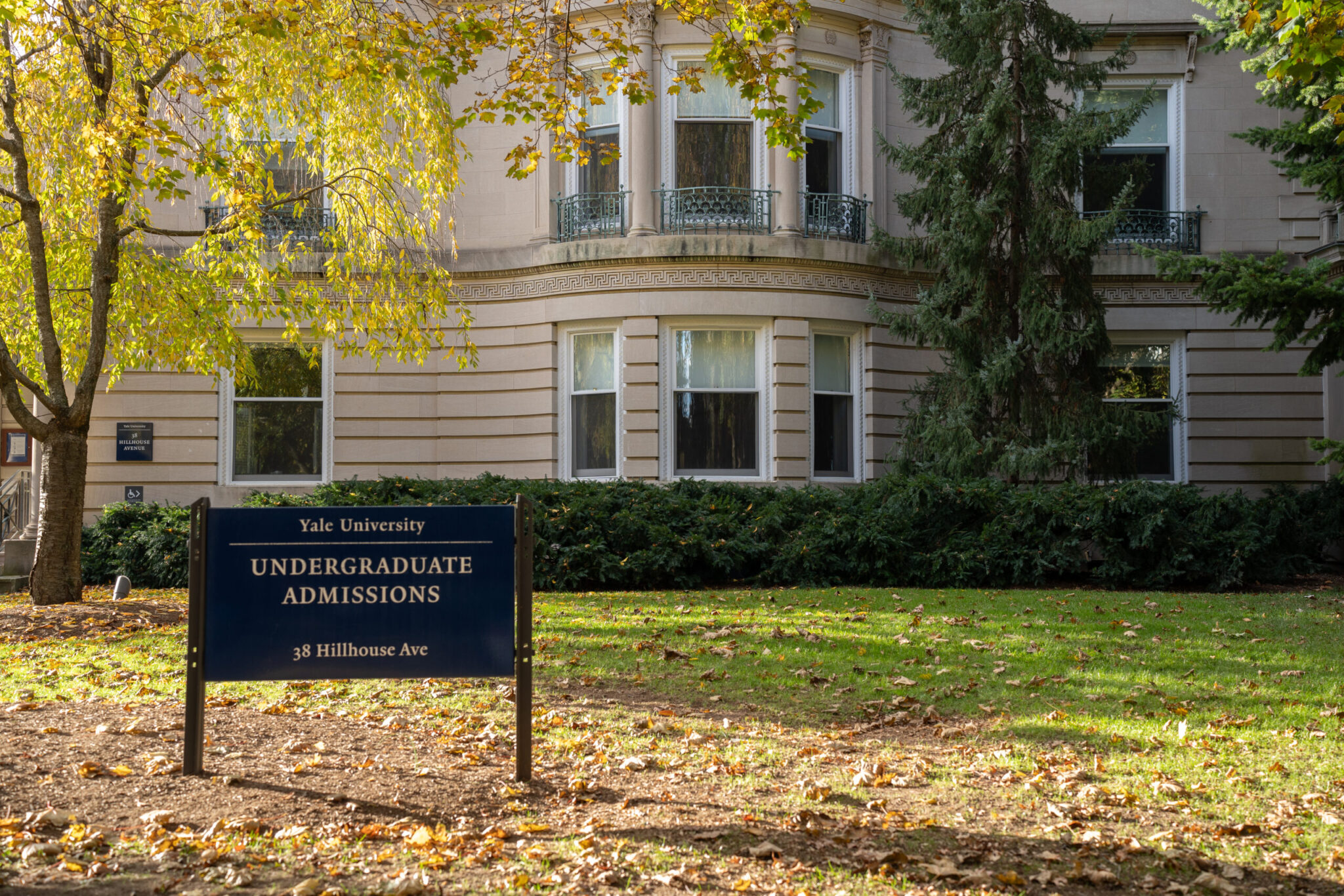Yale admits 3.7 percent of applicants, lowest acceptance rate ever
Of the 57,465 students who applied to join the Yale College class of 2028, 2,146 were offered admission, with an additional 773 offered a spot on the waitlist.

Ellie Park, Photography Editor
On Thursday evening, 1,365 students opened their browsers and logged into their Yale admissions portal to the news that they were offered a spot in the Yale College class of 2028.
The cohort joins the 709 applicants who were accepted via restrictive early action in December, as well as the 72 students who matched with Yale through the QuestBridge National College Match program. In total, of the 57,465 students who applied to join the class of 2028, 3.7 percent — or 2,146 students — were admitted, marking the lowest acceptance rate on record. The admitted class includes students from all 50 states, the District of Columbia, two U.S. territories and 62 countries.
The 3.7 percent acceptance rate for the class of 2028 is the lowest in Yale’s history, down 0.65 percentage points from last year’s 4.35 percent acceptance rate. The decrease continues a downward trend in acceptance rates that began during the COVID-19 pandemic in 2020 with applicants seeking admission to the class of 2024.
“The diverse range of strengths, ambitions, and lived experiences we saw in this year’s applicant pool was inspiring,” Dean of Undergraduate Admissions and Financial Aid Jeremiah Quinlan wrote in a press release. “We gauge the success of our outreach efforts by these qualities, and not by the total number of applications. But it is heartening to see that Yale College continues to attract exceptionally promising students from all backgrounds.”
The class of 2028 applied amid a changing admissions landscape. They are the last group of students to apply in a test-optional admissions cycle. Yale announced in February that it would resume requiring test scores for applicants seeking a spot in the class of 2029. A News survey found that under a test-optional policy, students on financial aid were more likely to have omitted test scores from their Yale applications.
The cohort is also the first to be admitted to the University since the fall of affirmative action in June. This year, admissions officers did not have access to information about applicants’ self-identified race when evaluating them for admission.
Admissions officers involved in the application reading process will have access to neither this information nor aggregate information about the racial makeup of the class of 2028 until after the admissions process has officially ended. According to Mark Dunn ’07, the senior associate director for outreach and recruitment at the Office of Undergraduate Admissions, the admissions cycle will not be officially completed until the final applicants have been offered admission off of the waitlist.
“Because some first-year applicants will be offered a spot on Yale’s waiting list, the admissions office’s selection process will not be complete on March 28,” Dunn wrote in an email to the News. “We will continue to maintain safeguards to ensure that the admissions officers involved in the review and selection of candidates from the waitlist do not have access to any race or ethnicity data at either the individual or aggregate level.”
Earlier this year, the admissions office hired two new full-time employees, whose jobs are devoted exclusively to community outreach and partnerships. Because these officers are not involved in the application reading process, they have access to aggregate racial data about the class of 2028; however, they will not be able to publish this information until after the admissions cycle has officially ended.
Due to delays with the rollout of FAFSA, the admissions office also does not have information about the proportion of students in the admitted class who are eligible for Pell Grants. However, Director of Undergraduate Financial Aid Kari DiFonzo told the News earlier this week that this will not delay financial aid offers for admitted students.
Each year, around the time matriculating first-year students arrive on campus in the fall, the admissions office publishes a detailed profile of the class, that includes information about demographics like racial and socioeconomic background. Dunn said that the release of the profile of the class of 2028 will not change this year from previous years.
All newly admitted students will be invited to campus in April for Bulldog Days. This year’s Bulldog Days will be the third in-person iteration of the event since the pandemic.
Admitted students will have until May 1 to respond to their offer of admission.







